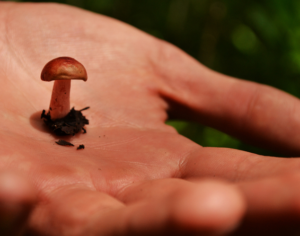Beyond prohibition of plant [and fungi] medicinals
The medical profession has spent many years establishing a monopoly over the right to provide medicines, wresting this power away from traditional healers, and it’s not going to hand that power back over without a struggle.
Another very real danger is that the prohibition of plant medicines will end, only for them to then be medicalized, falling under the strictures of that system. The plant medicines make for an uneasy fit in the medical model, and we need to think very carefully about whether or not we want them to. Compounding these concerns about over-medicalization, recently, we’ve witnessed what some view as a worrying trend towards the commodification of psychedelic medicine and knowledge by venture-backed companies, with somewhat suspicious links to some of the most harm-producing institutions of mainstream society; such companies surely have the plant medicines in their sights. Let’s not underestimate what we can achieve with these plant teachers as our accomplices; let’s not sell them—and ourselves—short. For all of these reasons, rather than stringent regulation or medicalization, I’m an advocate of decriminalization. Decriminalization comes in two flavors: either full, formal decriminalization, which entails the repeal of prohibitive legislation, or a or a watered down, informal decriminalization, which is normally effected via a change in policing policy, an agreement not to enforce criminal laws that remain in place, most commonly restricted to those that relate to possession in the realm of drug policy. It’s full decriminalization that is being advocated for here, which effectively equates with legalization, minus the accompaniment of an enforced regulatory system. I suspect many people want decriminalization, in their heart of hearts, but are reticent to say so, believing that we have to give concessions in order to get them. In my ideal world, decriminalization would be accompanied by the rise of plant medicine practitioner groups drawing up their own guidelines, their own protocols, that could then be voluntarily ascribed to: a bottom-up, rather than a top-down model, shaped by those who know what they’re talking about. We need guidance from those with wisdom, not law.
Original Article (Chacruna):
Beyond prohibition of plant medicines
Artwork Fair Use: Ian Watson



Recent Comments